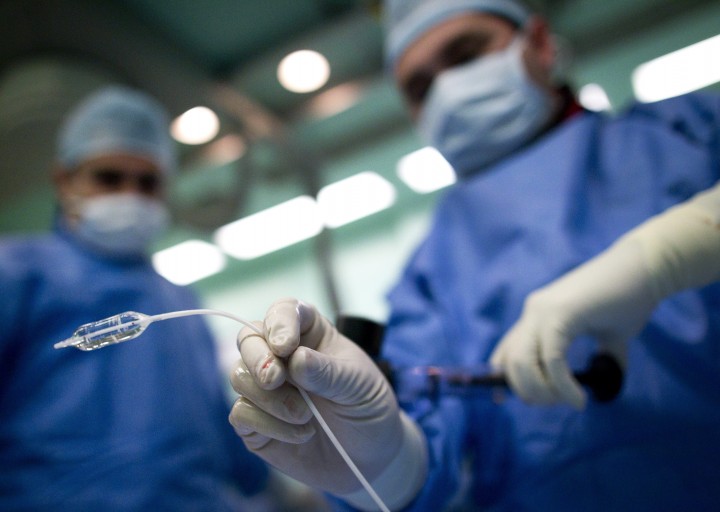REGINA – For patients and their families living with multiple sclerosis, every new study brings a high or a low to an already unpredictable disease.

“It is another roller coaster for people living with the disease,” said Erin Kuan, president of the MS Society of Canada, Saskatchewan Division
A study from the University of Calgary compares ultrasound reports of 120 MS patients and 60 others. It finds that there’s no link between chronic cerebral venous insufficiency – or CCSVI – and MS, casting doubt on a highly publicized 2009 report.
“There have been other studies that have looked at this as well and simply not been able to replicate the findings that came from Dr. Zamboni in Italy,” said Dr. Michael Hill, professor in the department of clinical neurosciences and one of the researchers on the study. “I wouldn’t recommend anybody having angioplasty.”
Dr. Paolo Zamboni’s research led to liberation therapy, which would open blocked neck veins. Since then, hundreds of patients, including some from Saskatchewan, have travelled to have the treatment done.
According to the MS Society, Saskatchewan has one of the highest rates of the disease in the world, with 3,500 to 5,000 living people with MS.
Patients who have had liberation therapy swear by its effectiveness.
- Trudeau tight-lipped on potential U.S. TikTok ban as key bill passes
- Canadian man dies during Texas Ironman event. His widow wants answers as to why
- Hundreds mourn 16-year-old Halifax homicide victim: ‘The youth are feeling it’
- On the ‘frontline’: Toronto-area residents hiring security firms to fight auto theft
“The best way I can describe it is before it was dark and now it’s light. I have hope with this awful disease,” said Michelle Walsh, who was diagnosed with MS four years ago and underwent liberation therapy in Bulgaria in 2010.
“I’ve been feeling so good that we had another baby last year. He was born happy and healthy,” said Walsh.
A few years ago, the ministry of health had committed $2.2-million to send Saskatchewan patients to Albany, New York for liberation therapy; however, those trials were cancelled last year.
The ministry recently announced it will put together a panel of people to decide what to do with the money.
“Individuals with research expertise, patients, families, caregivers. More details on that panel will be forthcoming in the coming weeks,” said Deb Jordan, executive director of acute and emergency services at the Ministry of Health.




Comments